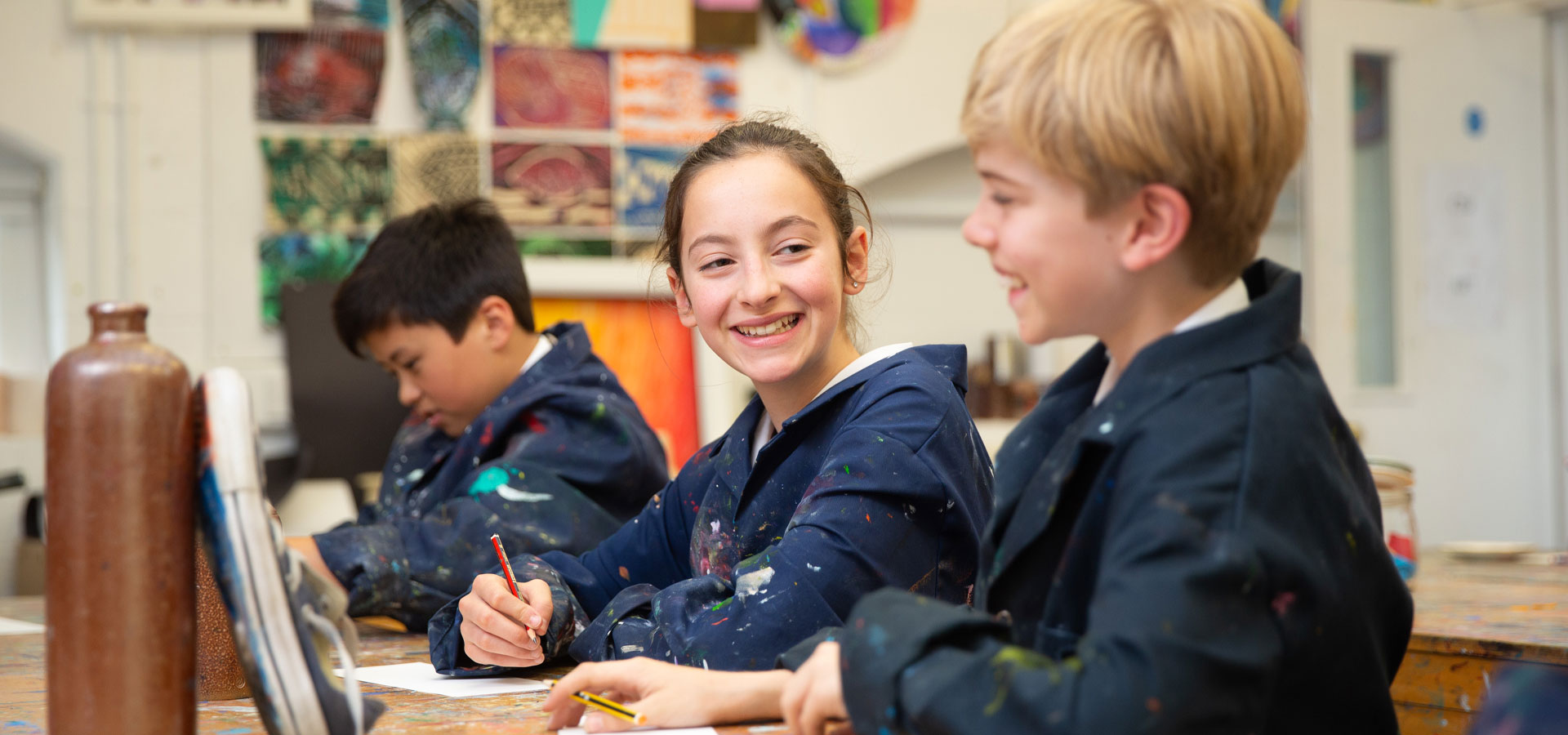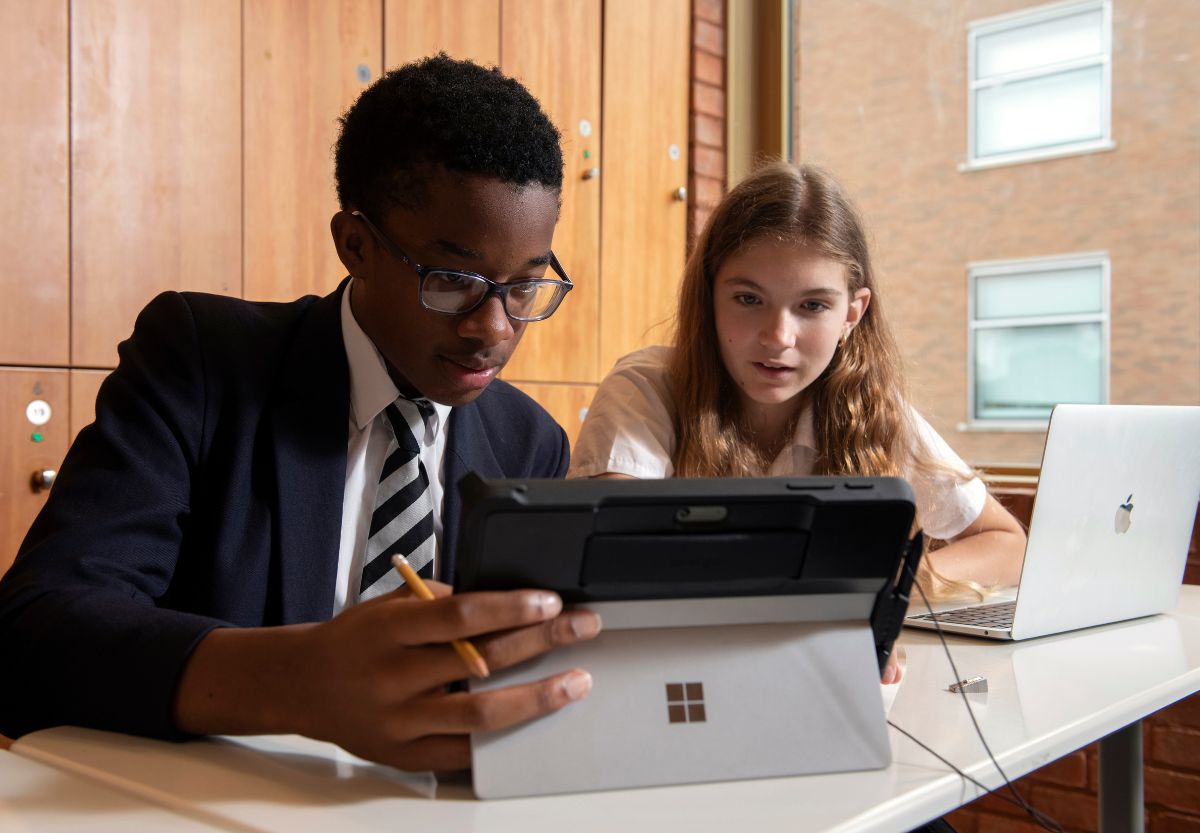At Alleyn’s we are dedicated to building sustainability and regeneration into our decision-making and ensuring that our young people are aware of those deeper implications of their choices. And yet we are aware that every pupil uses a laptop, and most will own a phone and that this in itself has an environmental impact. We explore the educational and social implications of such devices on us as consumers and on those connected to us through the chain of production within the Year 7 AiQ: Life Lab. Now it is time to open our eyes to the impending impact of using those devices as well, especially with the explosion of AI.
Every aspect of digital life has a footprint, but Generative AI is the giant. The hindsight we have regarding the devastation caused by the fast fashion industry should have us waving the red flag now with tech. The risks for our planetary boundaries are immense. In terms of energy consumption, one assessment suggests that ChatGPT alone is already consuming the equivalent of 33,000 homes. A Gen AI search uses between four and five times the amount of a conventional web search (Crawford, 2024). Predictions by the UN Environmental Report are that by 2030 almost half of the world’s population will be facing severe water stress; as UN Secretary General Guterres says, “Water is a human right and the common development denominator to shape a better future. But water is in deep trouble.” Projections about AI are that water usage could hit 6.6 billion m³ by 2027 (Gordon, 2024), more than Microsoft’s entire current usage for operations. Add the construction of data centres and we start to see the scale of the challenge.
The real issue is that this is only the tip of the iceberg: it is not solely the implications of the Al that we should pay attention to, but the what the AI is being used for.
These challenges are multifaceted and complex, and the solutions may be found through the use of AI itself.
Since we can only manage what we can measure, the poly crisis of climate, waste and biodiversity loss may be transformed through technological innovations resulting from our development of AI. Whether optimising energy deployment or calculating the environmental and climate footprints of products, AI itself may hold the key (UNEP, 2022).
The fundamental root to remember is the human directing this technology. It is an integrated systems approach that we need. As the MIT Climate and Sustainability Consortium recognise, the solutions require “deep, technical collaborations across disciplines and areas of expertise” (MCSC, 2024): just what we are building through AiQ.
It is holistic, systemic, interdisciplinary thinking and deliberate action that hold the solutions.
So how should we guide our children?
We should encourage them to become critically informed. To have integrity. To recognise that scrolling on TikTok doesn’t just have an impact on how you shape your own brain, it also takes a planetary toll. Allowing one YouTube short to slide into the next or asking Adobe Firefly to generate a picture of a very cute kitten might be what Juvenal meant by panem et circenses.
Pick up your device only if you are directing technology to shape the future rather than allowing it to shape us. This is exactly what AiQ courses seek to do – adventure forward with our young people to shape a just, joyful, and sustainable future for all.
Dorcas Maxwell
Director of AiQ
Works Cited
Crawford, K., 2024. Generative AI’s environmental costs are soaring — and mostly secret. [Online] Available at: https://www.nature.com/articles/d41586-024-00478-x [Accessed 15 05 2024].
Gordon, C., 2024. AI Is Accelerating the Loss of Our Scarcest Natural Resource: Water. [Online] Available at: https://www.forbes.com/sites/cindygordon/2024/02/25/ai-is-accelerating-the-loss-of-our-scarcest-natural-resource-water/?sh=92eaa687c06f [Accessed 15 05 2024].
MCSC, 2024. Considering the Environmental Impacts of Generative AI to Spark Responsible Development. [Online] Available at: https://impactclimate.mit.edu/2024/04/10/considering-the-environmental-impacts-of-generative-ai-to-spark-responsible-development/ [Accessed 15 05 2024].
UNEP, 2022. How artificial intelligence is helping tackle environmental challenges. [Online] Available at: https://www.unep.org/news-and-stories/story/how-artificial-intelligence-helping-tackle-environmental-challenges [Accessed 15 05 2024].




.jpg)

.jpg)





















